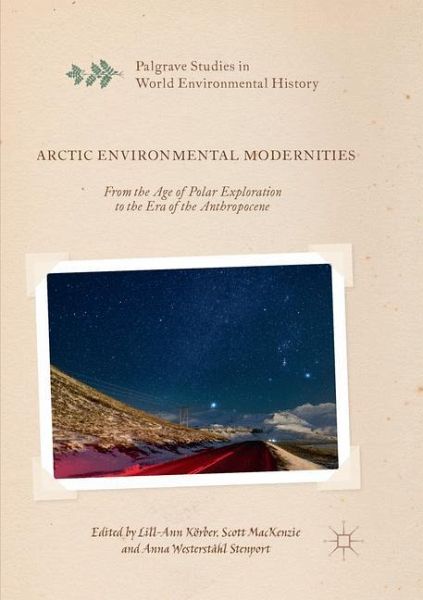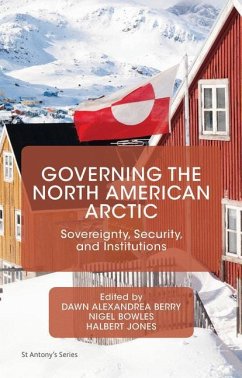
Arctic Environmental Modernities
From the Age of Polar Exploration to the Era of the Anthropocene
Herausgegeben: Körber, Lill-Ann; Mackenzie, Scott; Westerståhl Stenport, Anna
Versandkostenfrei!
Versandfertig in 6-10 Tagen
19,99 €
inkl. MwSt.

PAYBACK Punkte
10 °P sammeln!
This book offers a diverse and groundbreaking account of the intersections between modernities and environments in the circumpolar global North, foregrounding the Arctic as a critical space of modernity, where the past, present, and future of the planet's environmental and political systems are projected and imagined. Investigating the Arctic region as a privileged site of modernity, this book articulates the globally significant, but often overlooked, junctures between environmentalism and sustainability, indigenous epistemologies and scientific rhetoric, and decolonization strategies and gov...
This book offers a diverse and groundbreaking account of the intersections between modernities and environments in the circumpolar global North, foregrounding the Arctic as a critical space of modernity, where the past, present, and future of the planet's environmental and political systems are projected and imagined. Investigating the Arctic region as a privileged site of modernity, this book articulates the globally significant, but often overlooked, junctures between environmentalism and sustainability, indigenous epistemologies and scientific rhetoric, and decolonization strategies and governmentality. With international expertise made easily accessible, readers can observe and understand the rise and conflicted status of Arctic modernities, from the nineteenth century polar explorer era to the present day of anthropogenic climate change.














